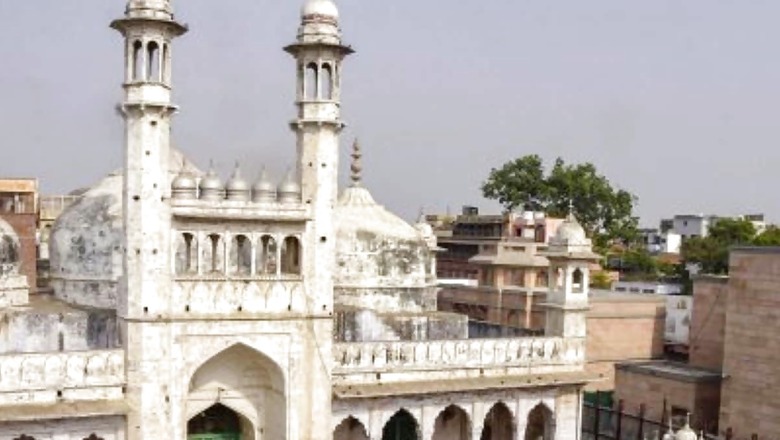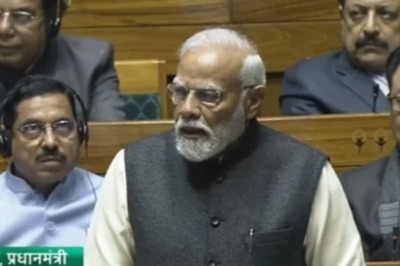
views
Quashing the petition challenging the district court’s order directing the Archeological Survey of India (ASI) to carry out a scientific survey of Varanasi’s Gyanvapi mosque, the Allahabad High Court on Thursday allowed the exercise to go on. The court of Chief Justice Pritinker Diwaker passed the order, stating that the scientific survey of the mosque is necessary for justice. “Allahabad High Court has said that an ASI survey of the Gyanvapi mosque complex will start. Sessions court order is upheld by the High Court,” said Vishnu Shankar Jain, representing the Hindu side in the Gyanvapi survey case.
Madan Mohan Yadav, another senior lawyer who was representing the women plaintiffs in the Shringar Gauri-Gyanvapi case, said, “We welcome the court’s order. I am happy that the court has considered our plea and upheld the district court’s order on conducting a scientific survey of the Gyanvapi mosque. I think it’s the only way to prove if there is a temple beneath the mosque or not.”
How events unfolded
On July 27, the Allahabad High Court reserved its verdict while stating that the interim stay imposed by the Supreme Court on the scientific survey would stand extended till August 3.
On July 21, Varanasi district court judge AK Vishwesha ordered the survey. Anjuman Intezamia Masjid Committee–the body that looks after the management of the Gyanvapi mosque, which is the Muslim side in the case–then moved to the Supreme Court against the order.
The apex court put the survey on pause until 5pm on July 26 to give some breathing space to the Intezamia Committee. Besides, it had also asked the Muslim side to approach the High Court against the district judge’s order.
Muslim side may move to SC
After the High Court’s verdict, the lawyers aware of the matter said they are prepared to counter the Muslim side which is likely to go to the Supreme Court.
Besides, they also stated that the court has said that the survey should be completed within one week. It was likely to start soon, they added.
How ASI would carry out survey
“Scientific survey of the Gyanvapi mosque is the only way to prove the point that the mosque was built over a temple. I think rather than objecting to it, the Muslim side should support the survey in order to dig out the truth and to resolve the bone of contention,” Jain said.
Officials engaged in the survey said that as part of the exercise, the premises of the Gyanvapi mosque would be scanned thoroughly. “As happened initially, the entire area of the mosque would be measured and videographed. Also, the ASI team would use ground-penetrating radar (GPR) as the main tool to identify if there is any structure lying beneath or not. Besides, the team would also study the architectural designs and the wall carvings in order to reach any conclusion,” another counsel who was part of the team which entered the Gyanvapi mosque to carry out the survey said.
Under the survey, the section of the structure that remained sealed since the Supreme Court’s order in May 2022 would be excluded. It’s the area where Hindus claimed to have found a Shivling whereas the Muslims said it was a fountain that was a part of the wazoo khana (place for ablutions).
The Allahabad High Court order also brought cheer to the women plaintiffs in the Shringar Gauri-Gyanvapi case and they celebrated by distributing sweets among the locals.


















Comments
0 comment